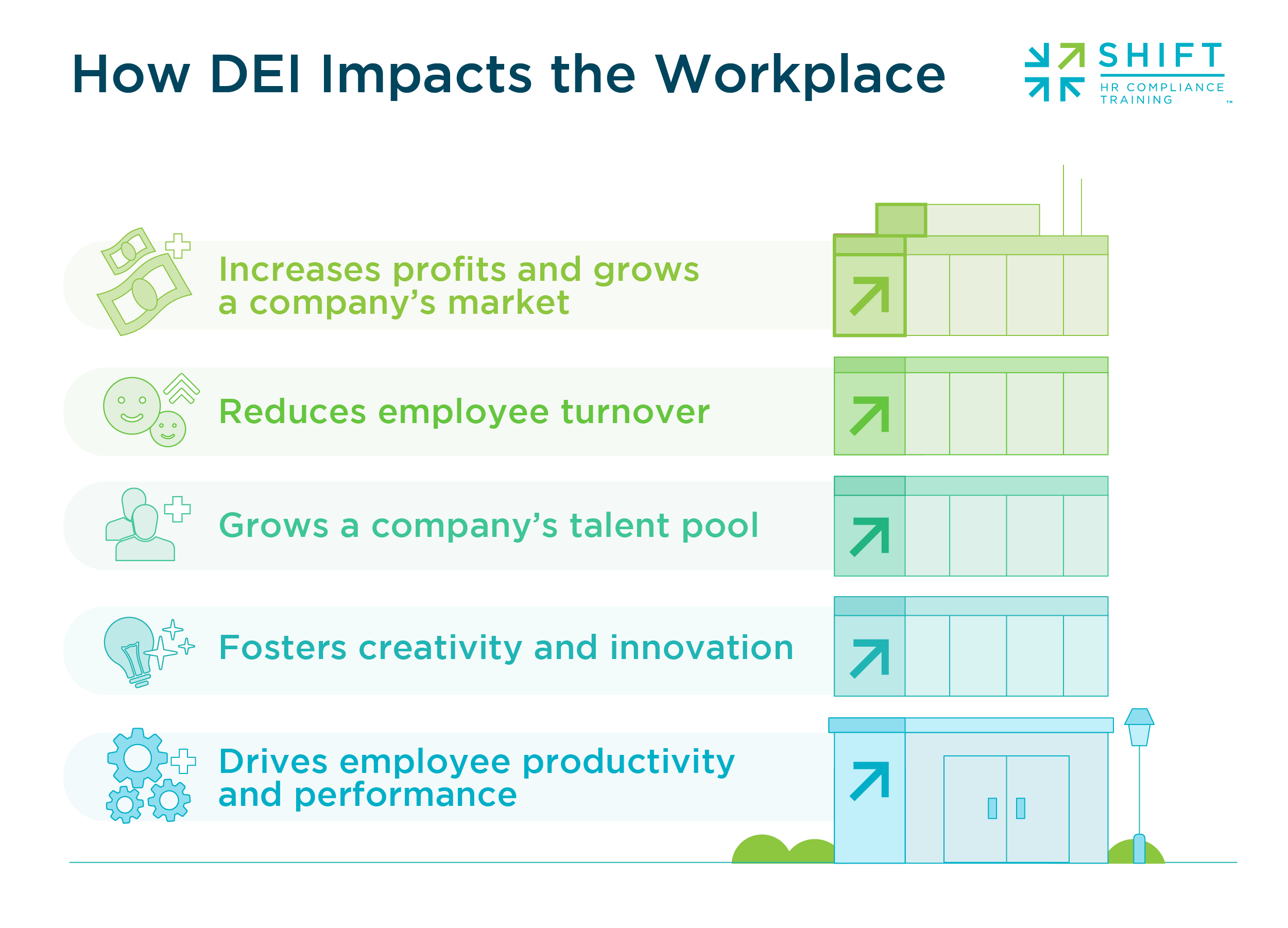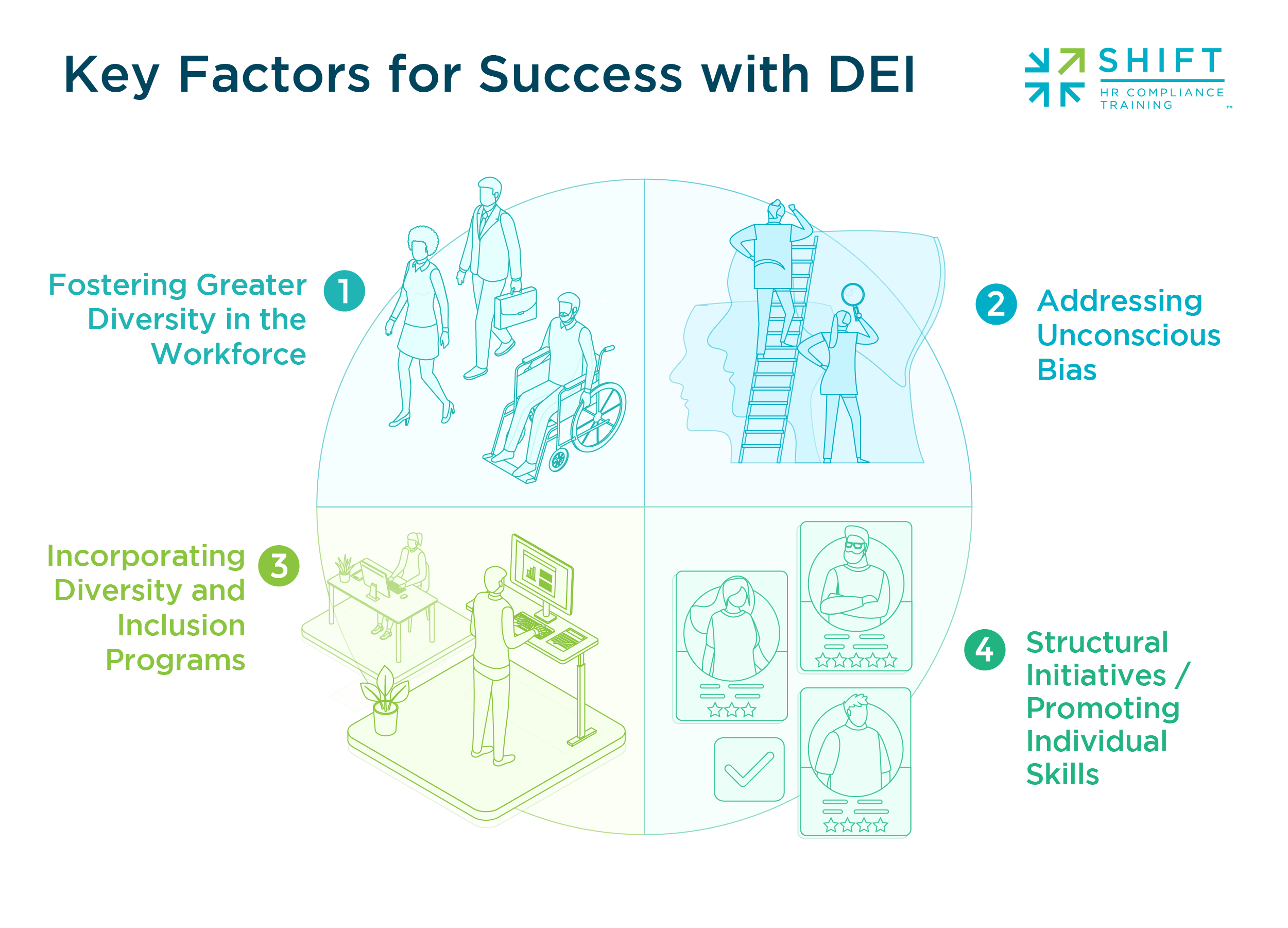Menu
Close
Menu
Close

Organizations and businesses of all sizes today are comprised of more minorities – including women, people of color, and people with different sexual orientations – than ever before. This shift not only offers the workplace greater strengths, but also greater differences.
As a result, Diversity, Equity and Inclusion (DEI) has become increasingly important and crucial for the health, productivity and success of the organization from a business and a human standpoint.
DEI is a term used to describe programs and policies that encourage representation and participation of diverse groups of people. This includes not only people of different genders, races and ethnicities, abilities and disabilities, religions, cultures, ages, and sexual orientations, but also those with diverse backgrounds, experiences, skills and expertise. The goal is to not only hire a diverse workforce, but also to have systems and procedures that allow for all employees to be included in business happenings and have their voices heard.
This is also more than just a socially responsible or “feel good” initiative. Studies show that DEI:
 Benefits of DEI
Benefits of DEIEmployers who create and invest in a culture of DEI are more productive, creative, innovative and financially successful. And, can attract great candidates. Millennials and Gen Z’ers are driving a richly diverse labor pool into business arenas, screens and virtual spaces. With the workspace shifting into more remote working, focusing on DEI is becoming increasingly important not only for workplace well-being, but also business well-being.
A recent study shows that 70% of job seekers said a commitment to diversity is important in evaluating a potential employer. According to Deloitte’s 2020 Millennial Survey, Millennials reported staying longer with companies that understand the needs of a diverse workforce. Not only that, but Forbes reported that workplaces with a strong culture of equality were five times more likely to have an innovation mindset than those with less inclusive cultures.
So how does a company set itself up for success and why is culture so important?
Embracing this workforce change and taking the necessary steps to ensure they are attracting – and retaining – top talent from all sectors of the population helps the company succeed now and into the future. When creating an all-inclusive culture where all employees are encouraged and allowed to thrive, it’s important to consider four key factors.
 Effective Leadership also plays a key role
Effective Leadership also plays a key roleHaving leaders in place to help promote and manage DEI is also key for creating a successful work environment. Hiring diversity at all levels, creating a diverse avenue for promotions, committing to DEI training among executives and team members, and learning from internal survey results to understand how everyone at your organization views your culture, are all important for ensuring everyone is respected and treated equally. Effective DEI engagement has to be led from the top, with strong leaders creating the importance for an environment of inclusion and implementing it well and consistently.
It’s also important to note that success is learned, and in an ever-changing work environment, to overlook an opportunity is not setting the business up for success. Not only is there value in building a diverse workforce and creating cultures that value diversity and inclusion, it also helps to keep the company relevant and attractive for top-level employees who are looking for a career and not just a job. Leaders who aim for success now and in the future need to attract top talent from all backgrounds, create a culture that grows and retains those employees, and provides an avenue for continued success and advancement.
A company cannot simply have the diversity and equity measures in place, but must also have the inclusion to ensure they are making the biggest impact possible. Once all operate smoothly it leads to a sense of belonging for your employees and that is the key objective, to ensure everyone feels like they belong.
DEI is not only something that should be promoted today, but should also be maintained, updated and managed throughout the future and as the business needs change and as employee needs change. Training, when done well, can make a great difference for employee success, work productivity, and happiness in the workplace, which all leads to a more profitable and strong business.

